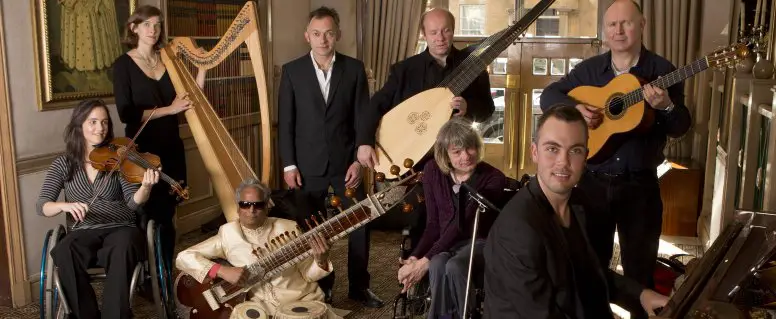
The British Paraorchestra: recruiting new talent
This is an updated post from our archives: The British Paraorchestra, now known simply as Paraorchestra, continues to thrive as an integrated ensemble of disabled and non-disabled musicians. As of December 2024, they are not actively recruiting new musicians or composers. Their most recent open call concluded in Spring 2024. Paraorchestra typically conducts open calls approximately every two years. To stay informed about future opportunities, you can subscribe to their newsletter or follow their social media channels.
Paraorchestra remains active, engaging in various performances and projects. For instance, in December 2024, they explored new frontiers in assistive music technology through a collaborative hackathon
Paraorchestra: Championing Diversity in Music
Since its inception, the Paraorchestra has been a leading voice in promoting diversity and inclusion in music. Known for blending the talents of disabled and non-disabled musicians, they continue to create groundbreaking performances.
Although the Paraorchestra is not currently recruiting, their open calls typically occur every two years. Here’s how you can stay involved:
- Follow their official website for updates.
- Subscribe to their newsletter for the latest opportunities.
- Explore their recent projects, including collaborations with assistive music technology.
Want to learn more about inclusive music? Visit their projects page to see the amazing work they’re doing.
Tips for Aspiring Disabled Musicians
Becoming a musician is a rewarding journey, and there are plenty of resources to help disabled people overcome barriers and thrive in the music industry. Here are some tips and tools to get you started:
- Explore Accessible Instruments: Look for adaptive instruments, such as modified keyboards or wind instruments, designed to suit a variety of physical abilities. Organizations like Drake Music specialize in creating accessible musical tools.
- Leverage Technology: Assistive technology can transform how music is made. Software like Pro Tools or apps like Logic Pro offer features that accommodate a wide range of abilities.
- Join Inclusive Communities: Engage with groups like Paraorchestra or local music workshops to connect with other musicians and share experiences.
- Seek Scholarships and Grants: Many organizations offer financial support for disabled musicians. Check out funding opportunities through Help Musicians UK.
- Find Mentors: Look for experienced musicians or educators who can provide guidance and inspiration as you develop your skills.
Remember, music is for everyone. With the right tools and support, you can achieve your goals and share your talent with the world!
Original post follows:
The British Paraorchestra have been going from strength to strength, this year performing at the Paralympic Games closing ceremony.
Do you have hidden musical talents? The British Paraorchestra is now recruiting.
Paraorchestra is showcasing incredible musical talent that lies undiscovered. Our vision is to create a platform for the best and most able musicians with disability to perform and excel at the highest level; to create a world stage for a whole community of gifted people whose enormous potential is currently overlooked.
Entrants need to be 16 and over, live in the UK and be “a prolific/highly able musician”. All instruments are welcome!
To apply, just email a recent short film of you playing an instrument to info@paraorchestra.com. Also include a few lines about yourself, your talent and why you want to join the British Paraorchestra.
You can find out more about the British Paraorchestra and the recruitment process on their website or Facebook page. Now that talents of the British Paraorchestra musicians have been showcased on the global stage of the Paralympic Games, watch this space as we’re sure there will be more to come…
Check out…
• Rust and Bone: a film review.
• Differently abled through digital art.
• Viewing disability and difference through the eye of a lens.
Don’t forget to get in touch by emailing us at editor@disabilityhorizons.com, tweeting us @DHorizons or sending us a message on Facebook.